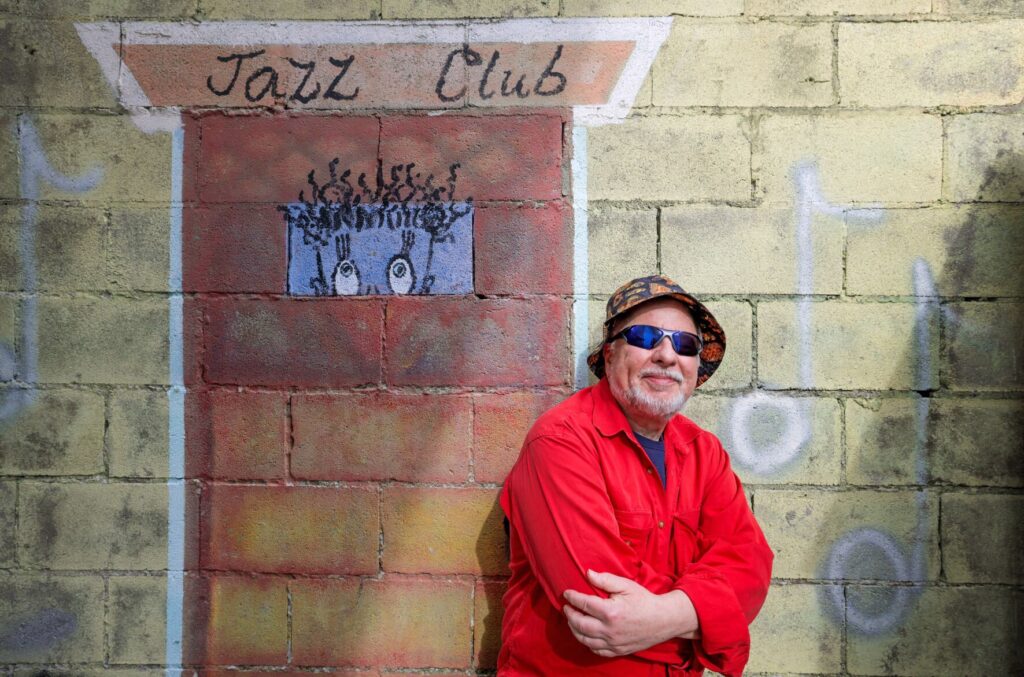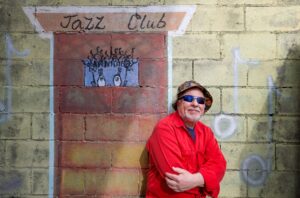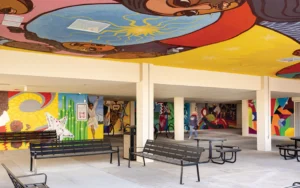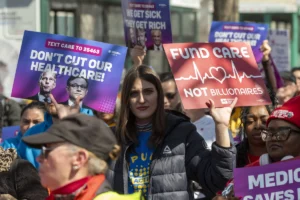Home »

New Orleans Musicians’ Clinic ends medical care partnership with LSU after 30 years
By STEPHANIE RIEGEL | Staff writer
Mar 30, 2025
The New Orleans Musicians’ Clinic and Assistance Foundation, a nonprofit organization that provides medical care and support services to the city’s musicians and culture bearers, is parting ways with the LSU Health Network after more than a quarter of a century.
The change is the result of funding shortfalls facing the foundation, which pays the salaries of three full-time LSU staffers — a nurse practitioner, social worker and medical assistant — who work at the St. Johnson Street clinic on the LSU Health campus. The foundation also helps cover out-of-pocket medical costs for those it serves.
Altogether, those costs topped $450,000 last year. During its recent donor appeal, the foundation raised about $220,000—less than half what it needs to keep the clinic running.
“We are operating at a deficit, which is not fulfilling our fiduciary duty,” said Dr. Peggy Honoré, president of the foundation board. “Last year, we had to dip into our reserves. That is not sustainable.”
But the foundation has found a way to keep its mission alive at another location. CrescentCare, a community health center with two facilities in New Orleans, has agreed to operate the New Orleans Musicians’ Clinic from its location in the 2500 block of Canal Street.
The change goes into effect in June, when the clinic’s existing location will close.
The New Orleans Musicians’ Assistance Foundation, meanwhile, will continue to fundraise and shift its focus to helping musicians get health insurance. Honoré said the organization will use the money it raises to pay a portion of its clients’ insurance premiums and out-of-pocket costs like copays and deductibles.
“There are likely going to be a lot more out-of-pocket costs in the future, if Medicaid is cut,” Honoré said. “So, we’re already planning and working with Crescent Care on how best to prepare.”
‘They care’
The New Orleans Musicians’ Clinic was created in the late 1990s to address the growing health disparities faced by musicians and other culture bearers in the city, many of whom were uninsured or underinsured at a time when health care was becoming increasingly complex and expensive.
The clinic was founded by a group of musicians and their advocates in partnership with the LSU Health Network, a nonprofit group of clinics affiliated with the LSU Health Sciences Center and staffed by LSU physicians. The organization and its mission resonated in a historic city renowned for its jazz and unique culture.
New Orleans’ musicians and performers power the local cultural economy. Yet many were neglecting preventive health care, working late nights and erratic schedules without benefits like health insurance or paid sick leave, the organization’s founders said at the time.
As the clinic grew, so did the need for more financial support. In 2007, the New Orleans Musicians’ Assistance Foundation was created to provide administrative and fundraising support for the clinic and expand its services to include things like financial literacy, behavioral health self-care and community wellness.
Jeff “Papa Frog” Klein, 74, a composer, percussionist and band leader, has used the clinic and foundation’s services for more than a decade, mostly for well visits and referrals to specialists. He says the artistic community would be lost without it.
“They say that New Orleans is a city that loves you back,” he said. “The musicians’ clinic embodies that 100 percent. They care about us — not just if we break a finger — but as people.”
Financial constraints
Despite its popularity within the community, the foundation has struggled in recent years to raise enough money to cover the costs associated with the clinic. In the nonprofit world, financial weaknesses can quickly snowball, Honoré said. Funders are reticent to make grants or large gifts to organizations that are not sustainable, which, in turn, makes them less sustainable.
In October, the clinic notified LSU that it would no longer be able to afford the salaries of the three staffers at the clinic, which cost $350,000 of the total $450,000 in operating expenses last fall.
“Our relationship with the clinic was always a good one,” said Ben Lousteau, Interim Vice Chancellor for Finance at LSU Health. “We supported the concept but they said due to financial constraints they would no longer be able to support the clinic.”
LSU will continue to have a relationship with the foundation, he added. The organization’s administrative offices are located within LSU and patients will still have access to any specialists at LSU they were referred to by the clinic.
New path forward
Late last year, Honoré reached out to CrescentCare about partnering and taking over the musicians clinic. Founded more than 40 years ago, Crescent Care was originally known as the NO/AIDS Task Force and has grown to become a full-service community health center with a staff of more than 270 and a variety of primary and behavioral healthcare services that treated more than 13,000 patients in 2024.
As a practical matter, CrescentCare would treat the musicians and performers from the musicians’ clinic even without a partnership because, under its mission as a federal qualified community health center, it treats anyone.
But Executive Director Alice Riener said it’s important to retain the branding of the New Orleans Musicians’ Clinic within CrescentCare because the clinic has such deep roots in the community and is a known entity among musicians and performers.
“Above all, we want to ensure continuity of care and support for the musicians,” Riener said. “There are obviously some unique challenges that musicians have that we want to figure out how to support. We are thrilled to be able to partner with them.”
Email Stephanie Riegel at stephanie.riegel@theadvocate.com.
View on NOLA.com
Published: Apr 16, 2025



